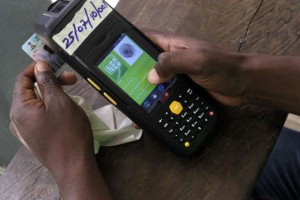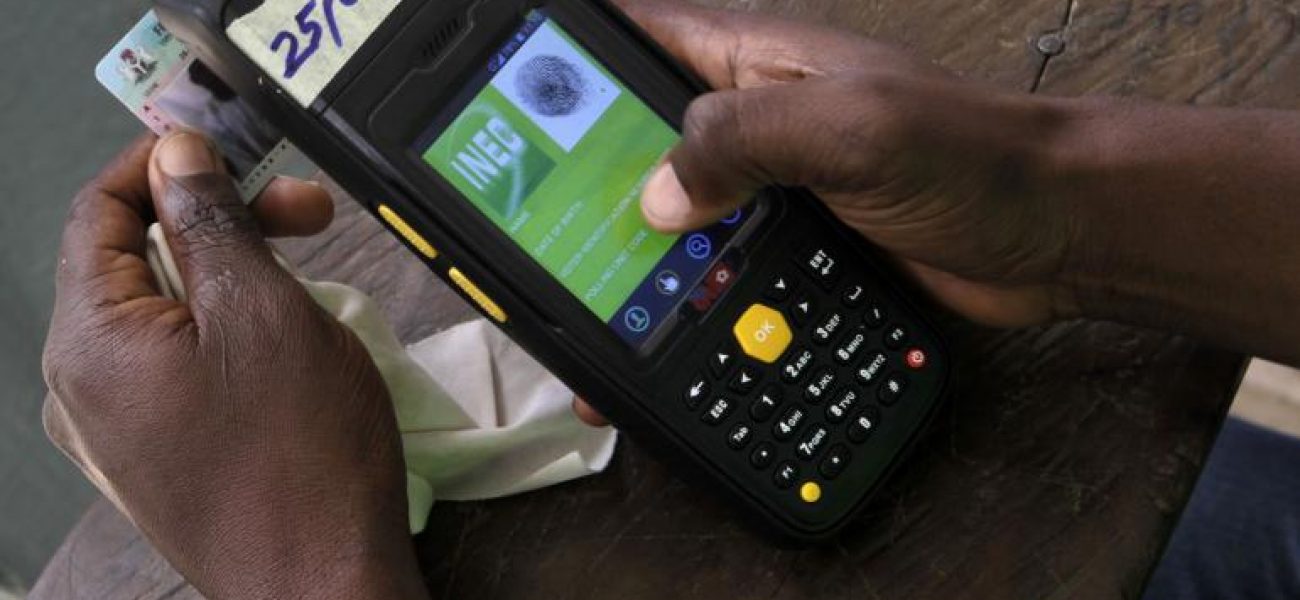 There have been divergent views pertaining to the validity or otherwise of the use of Smart Card Readers (SCR) in the 2015 General Elections in Nigeria. On the one hand, proponents of the SCR have viewed the innovation as a deliberate effort in ensuring the conduct of a free and fair election while on the other hand there have been arguments that INEC neither has the legitimate authority nor capacity to use the card reader. A careful study of the constitutional and statutory powers of INEC is needed to determine whether the use of SCR falls within the confines of the law.
There have been divergent views pertaining to the validity or otherwise of the use of Smart Card Readers (SCR) in the 2015 General Elections in Nigeria. On the one hand, proponents of the SCR have viewed the innovation as a deliberate effort in ensuring the conduct of a free and fair election while on the other hand there have been arguments that INEC neither has the legitimate authority nor capacity to use the card reader. A careful study of the constitutional and statutory powers of INEC is needed to determine whether the use of SCR falls within the confines of the law.
Firstly, it is clear that INEC is a creation of the law as it is established under section 153 of the 1999 Constitution (as amended) as a Federal Executive Body. Under paragraph 15 of Part 1 of the Third Schedule to the 1999 Constitution (as amended), INEC is mandated to organize, undertake and supervise all elections in Nigeria, conduct the registration of persons qualified to vote and prepare, maintain and revise the registration of voters for the purpose of any election. It is also empowered to carry out the functions conferred upon it by virtue of the Electoral Act, 2010 (as amended[1]). In addition, Section 118 of the aforementioned Constitution subjects the registration of voters and the conduct of elections to INEC’s discretion while section 16 of the Electoral Act, 2010(as amended) givespower to INEC to cause to design, print and control the issuance of a voters card to voters whose names appear on the register. Therefore, INEC has express and implied powers to design means, procedures and processes that enable it exercise the powers granted to it under the Constitution including for example, the use of Permanent Voter Cards in the 2015 General Elections.
Nonetheless, despite INEC’s power under the Constitution and the Electoral Act to regulate the conduct of elections in Nigeria, the divergent views on the legality of the SCR appear to be as a result of section 52 of the Electoral Act, 2010 (as amended) whichprohibits electronic voting.However, proponents of the SCR often distinguish the voting procedure outlawed by section 52 from the authentication process, which they claim that the SCR seeks to achieve. This is because section 52 merely regulates electronic voting not electronic devices such as the card reader, which authenticates the identity of a voter by verifying that his fingerprints match the biometrics stored on the embedded chip of his or her Permanent Voter Card. Furthermore, a more indepth study of electronic voting reveals that in countries where remote electronic voting is used, the personal attendance of a voter at a voting centre is not necessarily required as he/she is able to vote from a different location electronically. This is not the case with the SCR. Therefore, on a closer reading of section 52(1)(a) and (b), it would appear that a card reader is not an electronic voting machine but merely a system put in place to curb electoral fraud and impersonation. It also reduces the possibility of results from a polling unit from being liable to nullification and voidance.[2]
In spite of the seeming advantages of the SCR, fears on its use may be as a result of some of its apparent flaws that have been highlighted. For instance, despite INEC’s assurances that it had achieved a hundred percent success in its objective of verifying the authenticity of PVC’s presented by voters during the mock demonstrations conducted in 12 states on 7th March, only 57 percent of voters who came out for the demonstration had their fingerprints authenticated. Similarly, in the Presidential elections on March 28, the failure of the card reader in some polling units eventually led to INEC allowing manual accreditation where the card reader failed. Although, only 450 card readers out of 150,000 had failed[3], there had been concerns up to the run up of the elections as to whether the card readers should be used to experiment in elections as important and as widespread as the Presidential and Gubernatorial elections without first being tested in smaller byeelections.[4] The lack of adequate training by staff that handled the SCR may have also contributed to the failure of the SCR in some polling units. For example, in a recent statement, Mr. KayodeIdowu, Chief Press Secretary to the INEC Chairman, attributed the failure of the SCR in some instances to thenon-removal of the protective film[5], making it difficult in some instances and impossible in others for the machine to detect thumbprints. Although INEC has insisted that the card reader will be used in the April 11 Governorship and State Houses of Assembly Elections, efforts must be made to improve on the shortcomings from the elections held on 28th March.
Despite its shortcomings, the SCR remains one of the greatest innovations of the 2015 General Elections and the electoral management body must be commended for introducing such laudable innovation. However, the rapid technological revolution worldwide may call for a quick determination on whether the card readers will be used in the 2019 elections.
[1]See paragraph 15(i), Part 1 of the Third Schedule of the 1999 Constitution (as Amended)
[2]See Section 53 of the Electoral Act (2010) as Amended
[3]Card Reader Flop: Jega says number Insignificant http://www.channelstv.com/2015/03/29/card-reader-flop-jega-says-number-insignificant/
[4]http://saharareporters.com/2015/03/22/delta-ssg-criticizes-inec-card-reader-carpets-opposition , March 22, 2015
[5] http://www.premiumtimesng.com/news/top-news/179935-why-card-readers-malfunctioned-inec.html

